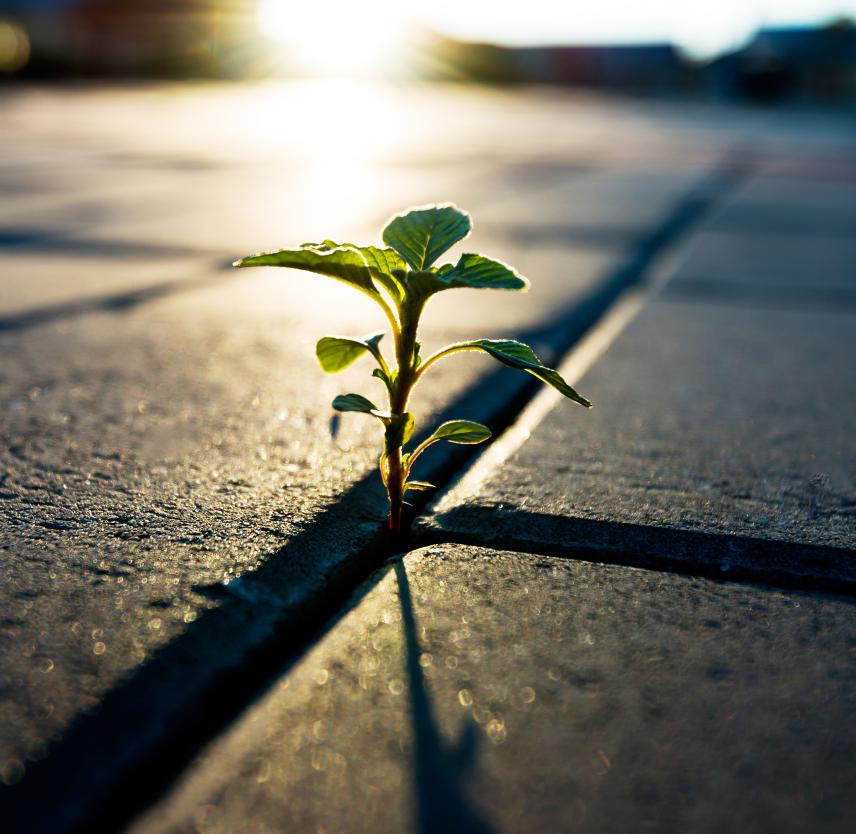
Many people have heard of post-traumatic stress (PTS), a normal response to an abnormal event, but not many recognize the struggles and hardships of trauma also can mean opportunities for growth. The experiences of loss and trauma are part of life. Post-traumatic growth (PTG) means many who experience trauma can come out stronger as a consequence. That is, you find a “new normal” that’s different in a positive way.
Some research suggests people can grow mentally, emotionally, and spiritually after difficult experiences such as cancer, terrorism, sexual assault, natural disasters, plane crashes, and even combat. Here are some positive changes you might see after trauma:
Personal strength
When people experience trauma, they often find opportunities to learn more about their fundamental capacity to manage hard situations, which can result in discovering strengths they might never have imagined.
Relationships
Traumatic events often allow you to discover the care and concern others might be willing to share during the recovery process. Many people report experiencing growth and improvements in their relationships. Accepting support from others, reaching out for help, expressing emotions, and learning you can count on others during times of trouble all serve to strengthen the connection you might feel to those around you.
New possibilities
Sometimes trauma closes the door to goals that individuals and families set out to accomplish in life. In having to reestablish priorities and identify new goals for their lives, some can see new pathways and possibilities they never knew existed.
Meaning and purpose
Trauma is often accompanied by your efforts to make sense of what and why things happened. The process of struggling to adjust your worldview can lead to greater clarity about life’s meaning and purpose. Those who experience trauma also might develop a deeper sense of connection to something larger than themselves, whether spiritual or religious in nature or just the world as a whole.
Appreciation of life
Trauma often threatens what people value most in their lives, and the recovery process can result in a greater sense of gratitude for things that often go unnoticed. Trauma might shift your priorities and increase your appreciation for the value of life as well as the mundane things you otherwise take for granted.
Misconceptions about post-traumatic growth
Trauma and growth often go hand in hand: Struggle creates opportunities where people can gain strength and perspective, which then results in growth. In other words, you don’t either feel stress or growth from trauma, but both. The experiences of PTG and PTS aren’t mutually exclusive. And growth doesn’t only happen for the resilient ones. It’s a misunderstanding to think only the weak experience struggles while the strong experience growth. In fact, when you have more coping skills to start with, you might not experience as much growth. That is, those who are more resilient at the start might have fewer chances than others to see those changes happen.
The bottom line
Understanding trauma is a part of life doesn’t make traumatic events any less distressing or surprising. Nobody wants to experience trauma, but if it happens, remember it doesn’t have to mean negative consequences. There might be an opportunity for you to come out the other side—changed for the better.
References
Tedeschi, R. G. (2011). Posttraumatic growth in combat Veterans. Journal of Clinical Psychology in Medical Settings, 18(2), 137–144. doi:10.1007/s10880-011-9255-2
Tedeschi, R. G., & Blevins, C. L. (2015). From mindfulness to meaning: Implications for the theory of posttraumatic growth. Psychological Inquiry, 26(4), 373–376. doi:10.1080/1047840x.2015.1075354
Tedeschi, R. G., & McNally, R. J. (2011). Can we facilitate posttraumatic growth in combat Veterans? American Psychologist, 66(1), 19–24. doi:10.1037/a0021896
Triplett, K. N., Tedeschi, R. G., Cann, A., Calhoun, L. G., & Reeve, C. L. (2012). Posttraumatic growth, meaning in life, and life satisfaction in response to trauma. Psychological Trauma: Theory, Research, Practice, and Policy, 4(4), 400–410. doi:10.1037/a0024204
Tedeschi, R. G., & Moore, B. A. (2016). The Posttraumatic Growth Workbook: Coming Through Trauma Wiser, Stronger, and More Resilient. Oakland, CA: New Harbinger Publications.
